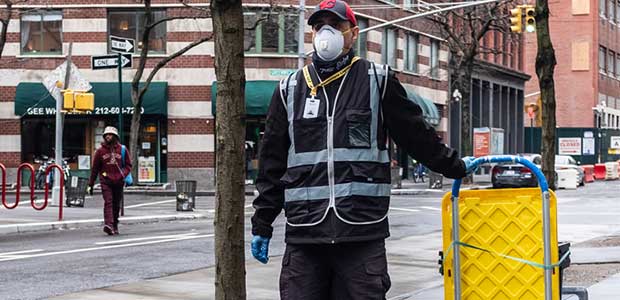
Essential Workers and Unemployment Benefits Do Not Go Together
If you’re an essential worker and choose not to work for fear of coronavirus infection, chances are you will not be eligible for unemployment benefits.
Generally speaking, if you quit your job, you will not receive unemployment benefits. During a pandemic, if you quit for fear of contracting the virus on the job, the rule still applies.
One article outlines the “essential worker trap”: the fact that there is no protective clause for unemployment benefits that addresses a worker’s fear of dying—or a person’s choice to quit their job they deem as unsafe.
In late April, Iowa Gov. Kim Reynolds declined that employees who decline to return to work will not be eligible for unemployment benefits, even if they are concerns about contracting the virus. Legally, Reynolds said, it is a “voluntary quit.” Therefore, librarians, gym instructors, restaurant employees, retail associates, racetrack workers and others across the country in areas beginning to reopen this month will have to choose between a paycheck with exposure to the virus or quit to protect their health.
“You’re just caught between a rock and a hard place. What do you do? We’re not going to qualify for unemployment now that the salon’s opening back up, so you feel forced to go back to work,” said Terri, a hair stylist in Georgia—which began opening its economy a week ago.
Many are outraged at Reynold’s stance, noting that it makes workers choose between two difficult scenarios. Many Americans are not comfortable going back to work right now, but most do not have much of a choice.
Even though the federal government extended unemployment insurance during the pandemic, adding an extra $600 a week through July, is to allow people to remain home. But many states are beginning to open their economies, and that entails asking people to come back to work.
And it’s worth noting that those struggling with the choice between working in danger and not getting paid at all are often those who cannot afford to not work. Many essential jobs are low-paid ones. Unemployment insurance is indeed a more lucrative and safer scenario for these workers, many of whom don’t have employer-subsidized health insurance. In addition, many of these jobs are disproportionately held by women, people of color, and those who are already vulnerable.
How is this allowed—or legal?
The article has a pretty simple answer: unemployment insurance does not have an “afraid of dying” clause.
In March, President Trump signed into law the Coronavirus Aid, Relief, and Economic Security Act, or the CARES Act, a $2.2-trillion stimulus package. Part of that was used to beef up unemployment insurance for the extended measure.
However, essential workers were not happy, as many of them noticed that they could be making more on unemployment than they were at their jobs. Second, they knew they could not quit and apply for it. Generally, unemployment benefits go to workers who are fired, furloughed, or laid off—not those who quit.
For essential workers, many are getting paid by the hour, have family members or loved ones they are worried about infecting and cannot afford to quit their jobs. The CARES Act does extend benefit eligibility for certain coronavirus-related scenarios, including workers who have been diagnosed with COVID-19 or live with (or are taking care of someone) who has; workers who are the primary caregiver of children whose schools are closed because of Covid-19; and workers who have become the primary source of financial support for a household in which the former head of the household died of Covid-19, among others.
These conditions, however, do not apply to every essential worker—and they are often contingent on the availability of testing which is a whole other complication.
The article notes that workers can contact the Occupational Safety and Health Administration (OSHA), but the likelihood of OSHA responding quickly or being able to address concerns soon is slim.